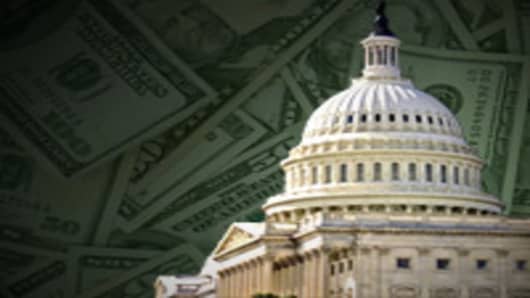"The real problem is that the global economy is badly overleveraged, and there is no quick escape without a scheme to transfer wealth from creditors to debtors, either through defaults, financial repression, or inflation," Rogoff writes.
He thinks that inflation is probably the fastest way out of our slump.
Many commentators have argued that fiscal stimulus has largely failed not because it was misguided, but because it was not large enough to fight a “Great Recession.” But, in a “Great Contraction,” problem number one is too much debt. If governments that retain strong credit ratings are to spend scarce resources effectively, the most effective approach is to catalyze debt workouts and reductions.
For example, governments could facilitate the write-down of mortgages in exchange for a share of any future home-price appreciation. An analogous approach can be done for countries. For example, rich countries’ voters in Europe could perhaps be persuaded to engage in a much larger bailout for Greece (one that is actually big enough to work), in exchange for higher payments in 10 to 15 years if Greek growth outperforms.
Is there any alternative to years of political gyrations and indecision?
In my December 2008 column, I argued that the only practical way to shorten the coming period of painful deleveraging and slow growth would be a sustained burst of moderate inflation, say, 4-6% for several years. Of course, inflation is an unfair and arbitrary transfer of income from savers to debtors. But, at the end of the day, such a transfer is the most direct approach to faster recovery.
Eventually, it will take place one way or another, anyway, as Europe is painfully learning.
Some observers regard any suggestion of even modestly elevated inflation as a form of heresy. But Great Contractions, as opposed to recessions, are very infrequent events, occurring perhaps once every 70 or 80 years. These are times when central banks need to spend some of the credibility that they accumulate in normal times.
What's truly fascinating about this is the frankness with which Rogoff addresses the criticisms of inflation-as-cure. Yes, it will be an arbitrary wealth transfer. Yes, it will damage the credibility of the monetary authorities. Yes, it would be unfair.
But we should do it anyway.
One question is "how?" How do we inflate our way out of these problems without a credit expansion that will only make them worse? It seems to me that the only way out would be inflationary spending. That is, direct money creation by the Treasury Department to spend on government programs unfunded by debt or taxes. As we saw during the debt ceiling debate, however, this seems unimaginable to Washington, D.C., policy makers.
Questions? Comments? Email us atNetNet@cnbc.com
Follow John on Twitter @ twitter.com/Carney
Follow NetNet on Twitter @ twitter.com/CNBCnetnet
Facebook us @ www.facebook.com/NetNetCNBC



